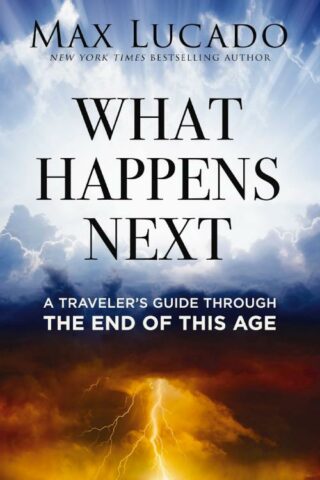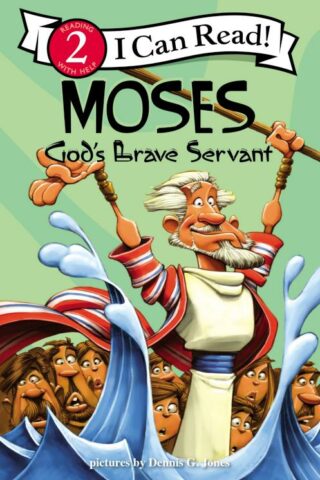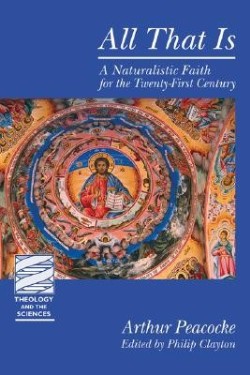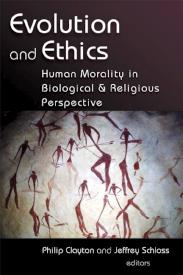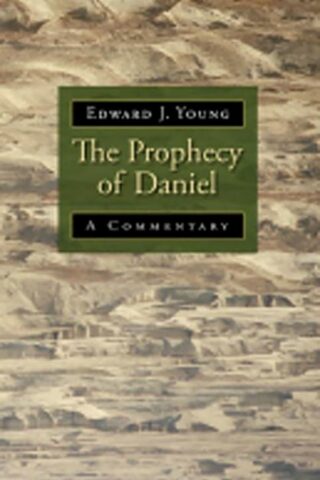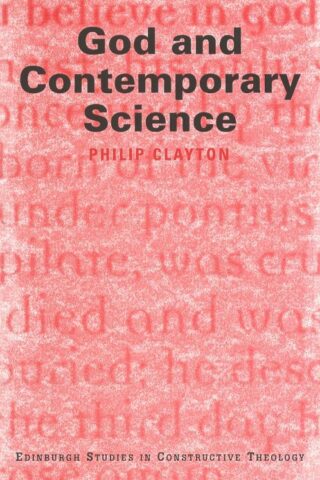Philip Clayton
Showing all 6 resultsSorted by latest
-
All That Is
$38.33During the last year of his life, Arthur Peacocke raced against time to formulate a final comprehensive overview of his “emergentist – naturalist – panentheist” perspective. A group of ten specialists in science-and-religion then composed commentaries and critiques of Peacocke’s new “Essay in Interpretation.” In the last weeks and months of his life, Peacocke drew together a final set of reflections on and replies to their chapters. Peacocke’s “Nunc Dimittis,” his final theological reflections in the days before his death, completes this volume.
Peacocke’s brief sketch of how God and nature and humanity interrelate will prove a nascent classic in the field and a touchstone for further reflection. Led by editor Philip Clayton, respondents include: Nancey Murphy, Ann Pederson, Philip Hefner, John Polkinghorne, Karl E. Peters, Donald M. Braxton, Robert John Russell, Keith Ward, Christopher C. Knight, and Willem B. Drees.
Add to cartin stock within 3-5 days of online purchase
-
Evolution And Ethics
$38.99Christians frequently resist evolutionary theory, believing it to be incompatible with the core values of their tradition. But what exactly are the tensions between evolution and religious faith in the area of human morality? Evolution and Ethics examines the burning questions of human morality from the standpoint of Christian thought and contemporary biology, asking where the two perspectives diverge and where they may complement one another.
Representing a significant dialogue between world-class scientists, philosophers, and theologians, this volume explores the central features of biological and religious accounts of human morality, introducing the leading theories and locating the key points of contention. Central to these discussions are the questions of whether human actions are ever genuinely selfless, whether there is something in the moral life that transcends biological function, and whether one can sensibly speak of an overall purpose to the course of evolution.
Certain to engage scholars, students, and general readers alike, Evolution and Ethics offers a balanced, levelheaded, constructive approach to an often divisive debate.
Add to cartin stock within 3-5 days of online purchase
-
In Whom We Live And Move And Have Our Being
$37.50SKU (ISBN): 9780802809780ISBN10: 0802809782Editor: Philip Clayton | Editor: Arthur PeacockeBinding: Trade PaperPublished: February 2004Publisher: Lightning Source – Print On Demand Print On Demand Product
Add to cartin stock within 3-5 days of online purchase
-
Problem Of God In Modern Thought
$48.99It is widely believed that modern philosophers have dismissed the idea of God and opted instead for a secular humanism. Challenging these stereotypes through a careful study of major philosophical texts written since the Enlightenment, Philip Clayton shows how the main thinkers of the modern period have continued to wrestle with the problem of God and to make proposals for understanding the divine.
Following up on his award-winning book God and Contemporary Science, Clayton here explores the constructive resources that modern thought offers to those struggling with the notion of God as “infinite” and “perfect.” He finds in the narrative of modern thought about God strong support for panentheism, the new theological movement that maintains the transcendence of God while denying the separation of God and the world.
Add to cartin stock within 3-5 days of online purchase
-
God And Contemporary Science A Print On Demand Title
$31.99New in the Edinburgh Studies in Constructive Theology. Vigorously defending the notion of “pantheism,” which locates the world within the divine being, yet still insists on God’s transcendence, Clayton’s seminal arguments draw on the Bible, philosophy, theology, and science.
Add to cartin stock within 3-5 days of online purchase
-
Doctrine Of Revelation
$26.50From the publisher: This book ventures a new interpretation of revelation. The author discusses the major themes in the narrative of revelation, engaging critically with four of the century’s giants in theology: Karl Barth, Paul Tillich, Karl Rahner and Carl Henry. These represent the four major phases in the narrative of revelation and Fackre addresses these alternative views in twentieth-century theology through in-depth inquiry and critical analysis. This book challenges reductionist views and strives for an ecumenical understanding that appropriates the insights from a variety of schools of thought.
Add to cartin stock within 3-5 days of online purchase

